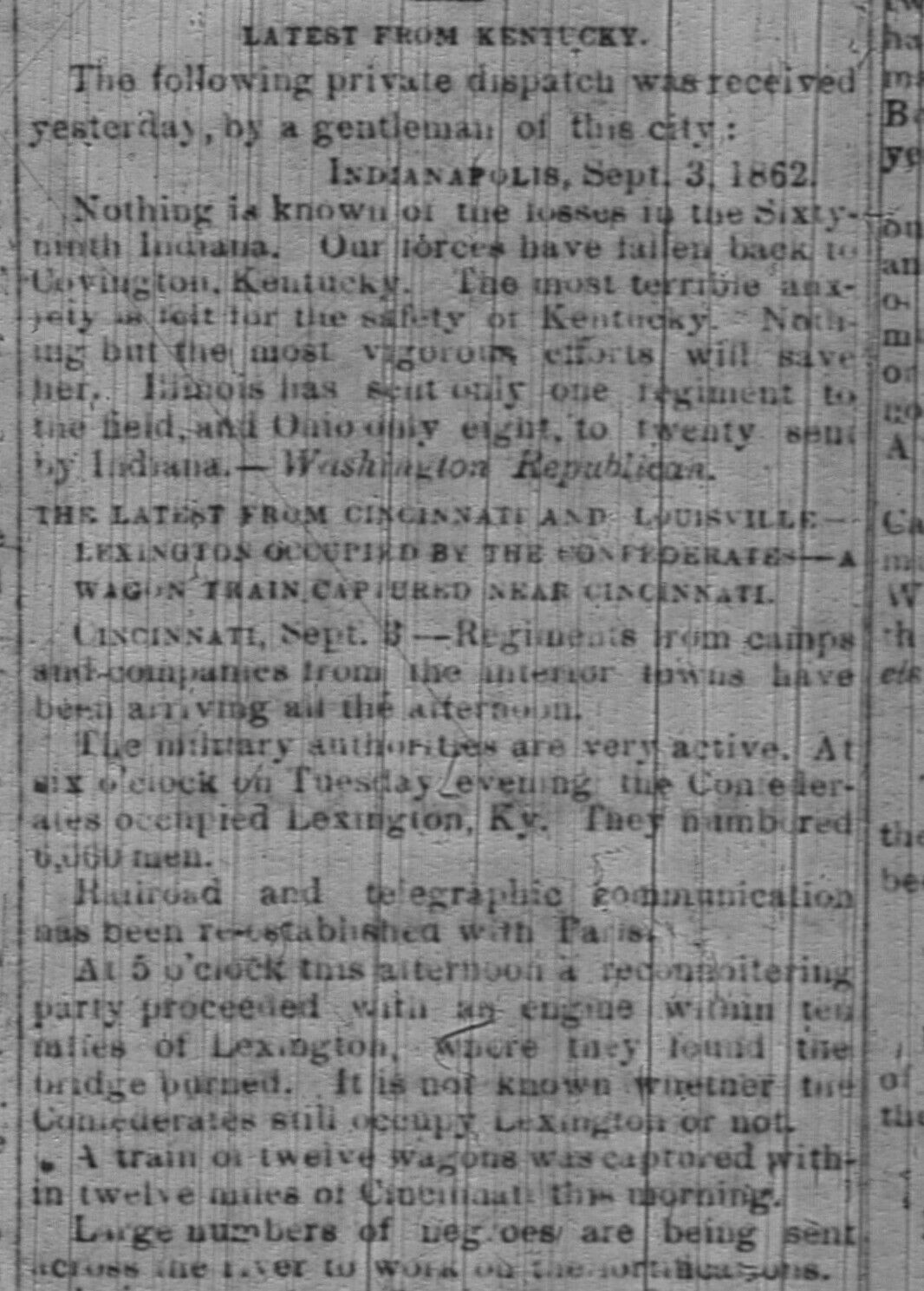-40%
Civil War: Confederate Newspaper: The Chattanooga Daily Rebel
$ 5.81
- Description
- Size Guide
Description
Civil War: Confederate Newspaper: The Chattanooga Daily Rebel526 pages, 272 issues, of The Chattanooga Daily Rebel published between August 9, 1862 to April 27, 1865, archived on CD-ROM. The best available copies were used to compile this collection. Approximately 420 pages are discernable.
This newspaper was published with both the names The Chattanooga Daily Rebel and the Daily Chattanooga Rebel.
The Rebel was one of only a few Tennessee Confederate newspapers that remained in circulation throughout the war. In its attempt to stay ahead of the Union Army, the Rebel was forced to move from town to town and soon earned the nickname the "Rebel on Wheels." Over the course of the war, the paper was published in Chattanooga, Tennessee; Marietta and Griffin, Georgia (as the Daily Chattanooga Rebel) in 1864-65; and, finally, Selma, Alabama, (once again as the Chattanooga Daily Rebel) in 1865.
Federal troops eventually caught up with the Rebel in Selma, in early April 1865. The troops occupied the offices while the Rebel's staff was held at the stockade. A few days later, as the troops left the town, they destroyed the Rebel's presses and type, and the building was set alight. However, a small hand press survived the destruction and a few last copies of the Rebel were published before it permanently ceased on April 27, 1865.
The first few issues of the Rebel had four pages (two sheets) but it was soon reduced to a single sheet. Content included general orders for soldiers, war news via telegraph dispatches, reports from other newspapers, local matters, and ads. Towards the end of 1862, the pressing demand for the newspaper prompted its founder Francis Paul to seek out and purchase more printing equipment. With a power press purchased in Rome, Georgia, and an engine from Huntsville, Alabama, he was able to print 8,000 copies daily. "Five thousand copies was the standing order from one army news agent, and the rest went everywhere throughout the Confederacy." Circulation was limited by scarcity of paper rather than lack of demand.
On September 27, 1862, the Rebel ran an article championing the press's vital role in wartime communications. The piece was entitled "The Importance of the Press in Time of War" and was signed, "PRINTER." It strongly emphasized the importance of the Confederate press to the government and military, as well as citizens. "The importance of the Press in time of war to the spirit of the army is incalculable. It is, as one of our correspondents observes, 'the only medium of organized public opinion—the only source of communication between the Government and the people, and which if silenced (as the Senate and House propose) would leave these wise bodies themselves practically as voiceless as the grave.'"
About Franc Paul and Henry Watterson
Francis M. "Franc" Paul established the Chattanooga Daily Rebel in August 1862, after the town's two newspapers had merged, then suspended publication earlier that year. Paul was principal clerk of the Tennessee senate and had formerly been a printer for Brownlow's Knoxville Whig. Paul was the Rebel's sole publisher and editor during its first few months. On a trip to Murfreesboro, he met Henry Watterson and invited him to become editor of the Rebel. Watterson already had considerable newspapering experience, having written for the press in Washington, D.C., New York, and Nashville. Shortly after Watterson began writing for the Rebel, his friend Albert Roberts joined him. Both went on to notable journalistic accomplishments after the war. As was customary amongst Civil War correspondents, both Watterson and Roberts wrote under pen names. Watterson, writing as John Burley, often criticized General Braxton Bragg's military operations, prompting Bragg to threaten to ban the paper from his camps. In addition to his war reports, Roberts provided "a cheerful witty side to every issue. His 'JOHN HAPPY' letters, 'Grapevine Telegraph' and bright, sparkling paragraphs were eagerly sought and read by the boys at the front and by the old men, women and children in the rear."
Source: Tennessee State Library & Archive and the University of Tennessee Library
Articles from the newspaper issue above
Additional Sample Articles



















